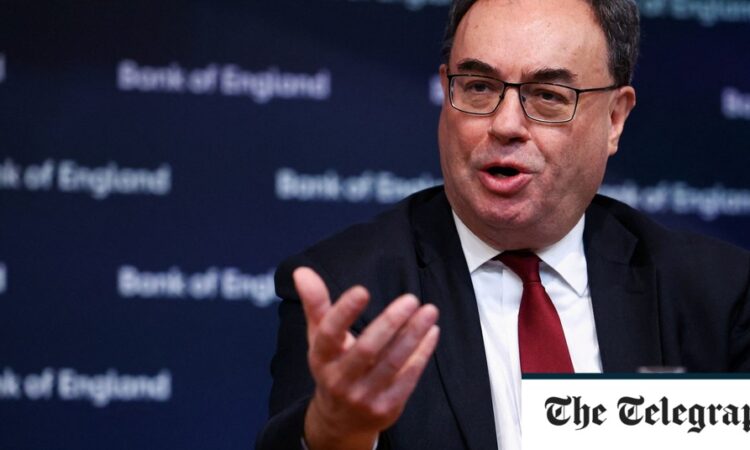
“Recent data on key indicators of inflation persistence have surprised the [Bank’s] projections meaningfully to the downside, and we pull forward our first [interest] cut to May (versus June previously),” he said.
Although this is a later reduction in borrowing costs than that expected in other countries, even this may be optimistic, as far as borrowers are concerned.
Jack Meaning, of Barclays, a former economist at the Bank, predicts that the MPC will only start cutting rates from August next year, but with a growing chance of an earlier move, given this week’s surprise drop in inflation to 3.9pc.
“We have the Bank of England as the last of those big three [central banks] to go,” he said.
“The levels of inflation are higher in the UK and have been looking arguably stickier. The demand outlook in the eurozone seems to be deteriorating more quickly than in the UK, and so the MPC has got a little bit more work to do on the inflation side than our European counterparts.”
At the very least, he expects officials will want to wait to see several months of data from the revamped jobs market survey before they can be certain that pay growth and inflation are both falling more sustainably.
That survey is not due to be rolled out by the Office for National Statistics (ONS) until the spring.
Simon French, chief economist at Panmure Gordon, also expects an August rate cut.
“There are renewed inflation risks in the pipeline during the second quarter of 2024 as working-age benefits, pensions and the National Living Wage get uprated well ahead of inflation,” he said.
“The MPC will want to see evidence that these spring indexation events don’t trigger second order price effects.”
So far, inflation has fallen from October 2022’s peak of 11.1pc to 3.9pc in November, which is still almost double the Bank’s 2pc target.
Earlier this week, Ben Broadbent, the Bank’s deputy governor for monetary policy, stressed that pay growth is slowing only gradually and the data behind it is unusually uncertain.






